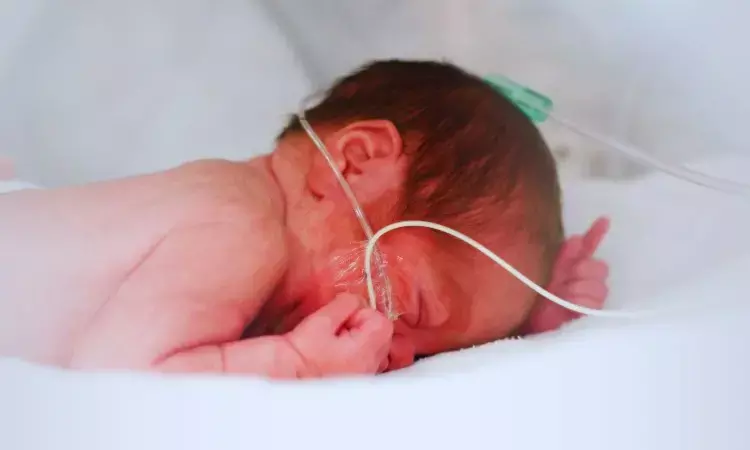- Home
- Medical news & Guidelines
- Anesthesiology
- Cardiology and CTVS
- Critical Care
- Dentistry
- Dermatology
- Diabetes and Endocrinology
- ENT
- Gastroenterology
- Medicine
- Nephrology
- Neurology
- Obstretics-Gynaecology
- Oncology
- Ophthalmology
- Orthopaedics
- Pediatrics-Neonatology
- Psychiatry
- Pulmonology
- Radiology
- Surgery
- Urology
- Laboratory Medicine
- Diet
- Nursing
- Paramedical
- Physiotherapy
- Health news
- Fact Check
- Bone Health Fact Check
- Brain Health Fact Check
- Cancer Related Fact Check
- Child Care Fact Check
- Dental and oral health fact check
- Diabetes and metabolic health fact check
- Diet and Nutrition Fact Check
- Eye and ENT Care Fact Check
- Fitness fact check
- Gut health fact check
- Heart health fact check
- Kidney health fact check
- Medical education fact check
- Men's health fact check
- Respiratory fact check
- Skin and hair care fact check
- Vaccine and Immunization fact check
- Women's health fact check
- AYUSH
- State News
- Andaman and Nicobar Islands
- Andhra Pradesh
- Arunachal Pradesh
- Assam
- Bihar
- Chandigarh
- Chattisgarh
- Dadra and Nagar Haveli
- Daman and Diu
- Delhi
- Goa
- Gujarat
- Haryana
- Himachal Pradesh
- Jammu & Kashmir
- Jharkhand
- Karnataka
- Kerala
- Ladakh
- Lakshadweep
- Madhya Pradesh
- Maharashtra
- Manipur
- Meghalaya
- Mizoram
- Nagaland
- Odisha
- Puducherry
- Punjab
- Rajasthan
- Sikkim
- Tamil Nadu
- Telangana
- Tripura
- Uttar Pradesh
- Uttrakhand
- West Bengal
- Medical Education
- Industry
Is Immediate Surgery Necessary? Research Supports Delayed Approach for Type C Esophageal Atresia

China: A recent study published in BMC Surgery explored whether thoracoscopic repair of type C esophageal atresia requires emergency intervention, providing valuable insights into surgical timing and outcomes. The findings suggest that advancements in neonatal surveillance enable appropriately delayed surgery without increasing respiratory infection risk, allowing surgeons to refine treatment plans.
The researchers note that thoracoscopic repair of esophageal atresia (EA) with tracheoesophageal fistula (TEF) is performed more frequently. While many children undergo surgery within the first three days of life, the ideal timing for the procedure remains uncertain. Therefore, Shao-tao Tang, Huazhong University of Science and Technology, Wuhan, China, and colleagues aimed to evaluate the appropriate timing for thoracoscopic repair of type C EA and assess its mid-term clinical outcomes.
For this purpose, the researchers retrospectively analyzed 142 patients with esophageal atresia (EA) treated between 2009 and 2023. Among them, 109 patients with type C EA who underwent thoracoscopic one-stage repair were included. Based on surgical timing, patients were categorized into two groups: the early repair group (< 5 days) and the delayed repair group (≥ 5 days). Propensity score matching (PSM) was applied to minimize imbalances caused by severe cardiac complications, gestational age, and birth weight, ensuring a more accurate comparison between the two groups.
The study led to the following findings:
- The median age at surgery was 5 days, ranging from 1 to 16 days.
- After matching, 43 out of 59 patients in the early repair group (Group A) and 43 out of 50 patients in the delayed repair group (Group B) were included in the validation cohort.
- All 86 cases successfully underwent thoracoscopic one-stage repair surgery.
- Delayed surgery did not increase the incidence of preoperative or postoperative respiratory tract infections.
- Intraoperative and postoperative complications were similar between the two groups.
- Patients in Group B required fewer balloon dilations for anastomotic stricture during follow-up (1.8 ± 0.8 versus 3.1 ± 1.1).
The study showed that in patients with type C esophageal atresia, delayed thoracoscopic repair is a safe and viable option, with postoperative outcomes comparable to early repair. Performing the surgery at or after five days in a well-equipped NICU does not increase the risk of preoperative respiratory infections compared to earlier interventions.
"These findings support a more flexible surgical approach, allowing better allocation of operating room resources by postponing emergency repairs to scheduled surgical days without compromising patient outcomes," the researchers concluded.
Reference:
Wang, C., Cao, G., Li, K. et al. Does thoracoscopic repair of type C esophageal atresia require emergency treatment? BMC Surg 25, 66 (2025). https://doi.org/10.1186/s12893-025-02798-9
Dr Kamal Kant Kohli-MBBS, DTCD- a chest specialist with more than 30 years of practice and a flair for writing clinical articles, Dr Kamal Kant Kohli joined Medical Dialogues as a Chief Editor of Medical News. Besides writing articles, as an editor, he proofreads and verifies all the medical content published on Medical Dialogues including those coming from journals, studies,medical conferences,guidelines etc. Email: drkohli@medicaldialogues.in. Contact no. 011-43720751


